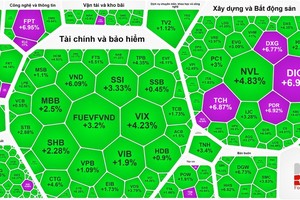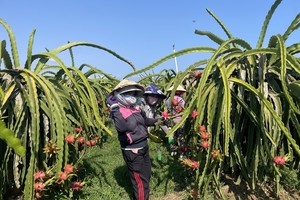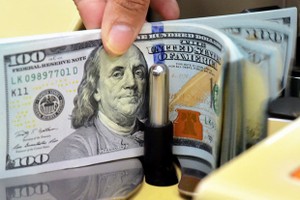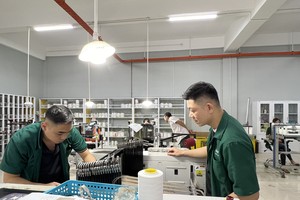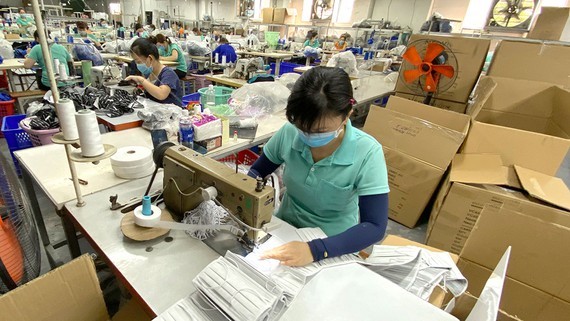
In a recent interview with Sai Gon Giai Phong Newspaper, Deputy Director of the Import and Export Department under the Ministry of Industry and Trade Tran Thanh Hai said that textile and garment is also the nation’s second most important sector, providing a wide range of product that cater to most global segments.
The sector has suffered from both material shortages in February when the Covid-19 epidemic began in China, and the current recession caused by outbreaks Europe and the United States. As a result, the shift to cloth mask production has become a solution for textile and garment companies to maintain production, retain workers and generate income, said Mr. Hai.
Based on 50 companies that registered their data, the mask production capacity is up to 8 million pieces a day or about 200 million pieces per month, and is a much greater number if multiplied to a national scale, according to the Department of Industry under the ministry.
What’s more, several companies can now produce antibacterial fabric from organic materials to use in the masks, rather than having to import them like before.
Since the demand for cloth masks increased, manufacturers have worked to upgrade the designs and materials to enable easier breathing and speech. Many also added extra layers of water resistant and anti-aerosol materials.
Not a long-term investment
Although Vietnam has potential to become the largest producer of cloth masks, the use of this product is not as common as medical masks, Mr. Hai expressed.
Additionally, the nation’s mask supply capacity has not been made well-known in the world. When the pandemic dies down, so will the demand for masks, and it is not a dependable source of corporate income, he added.
It should also be noted that buyers from developed countries often require high quality products with users’ safety requirements. Therefore, businesses need to incorporate these standards and apply for appropriate certificates for exports.
As soon as the epidemic surfaced in Vietnam, the Ministry of Industry and Trade bridged the gap between textile enterprises and distributors, large commercial centers and supermarkets to boost domestic cloth masks consumption.
As the domestic market is becoming saturated, the Ministry has worked with foreign informants to find buyers overseas.




